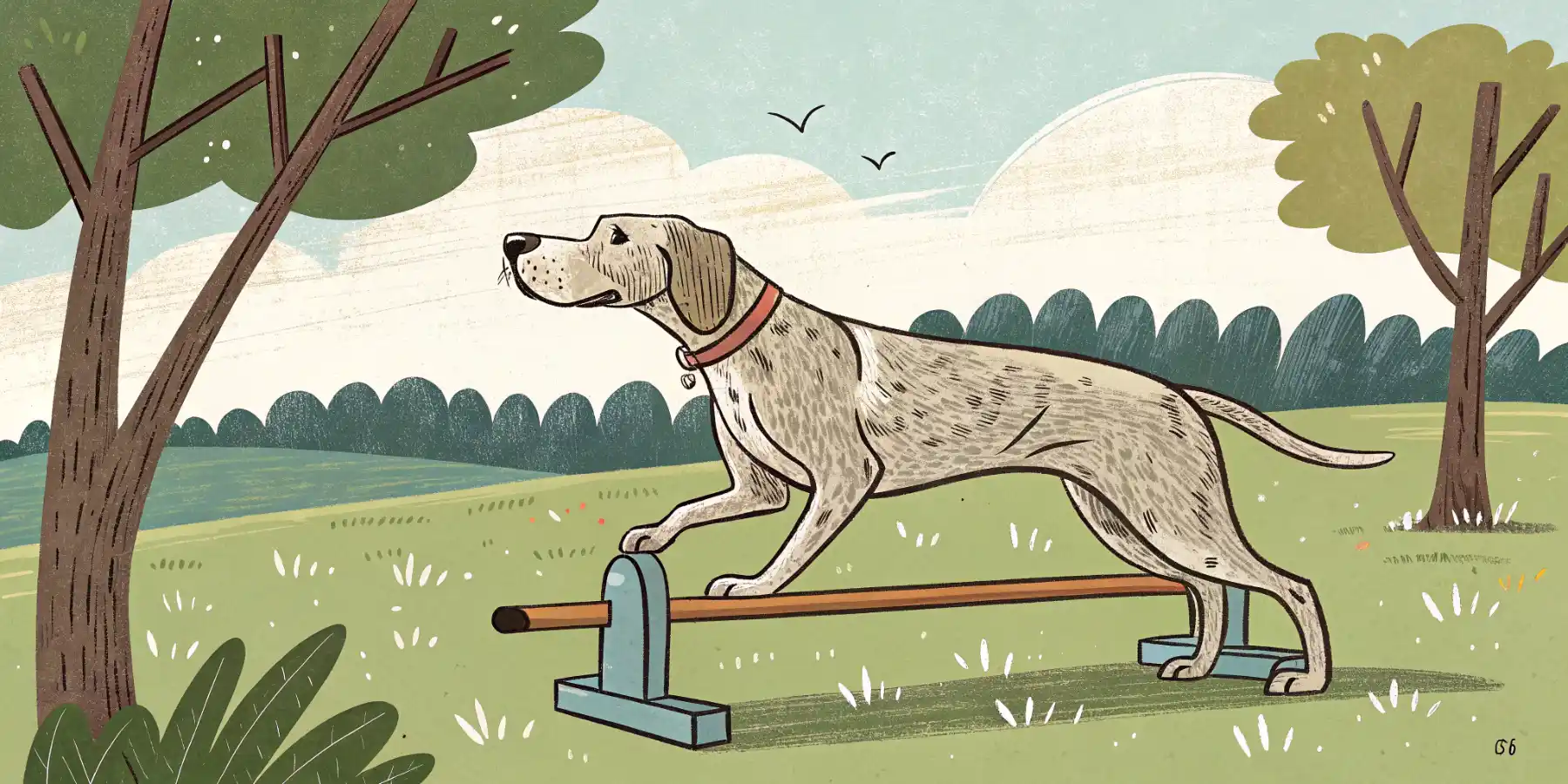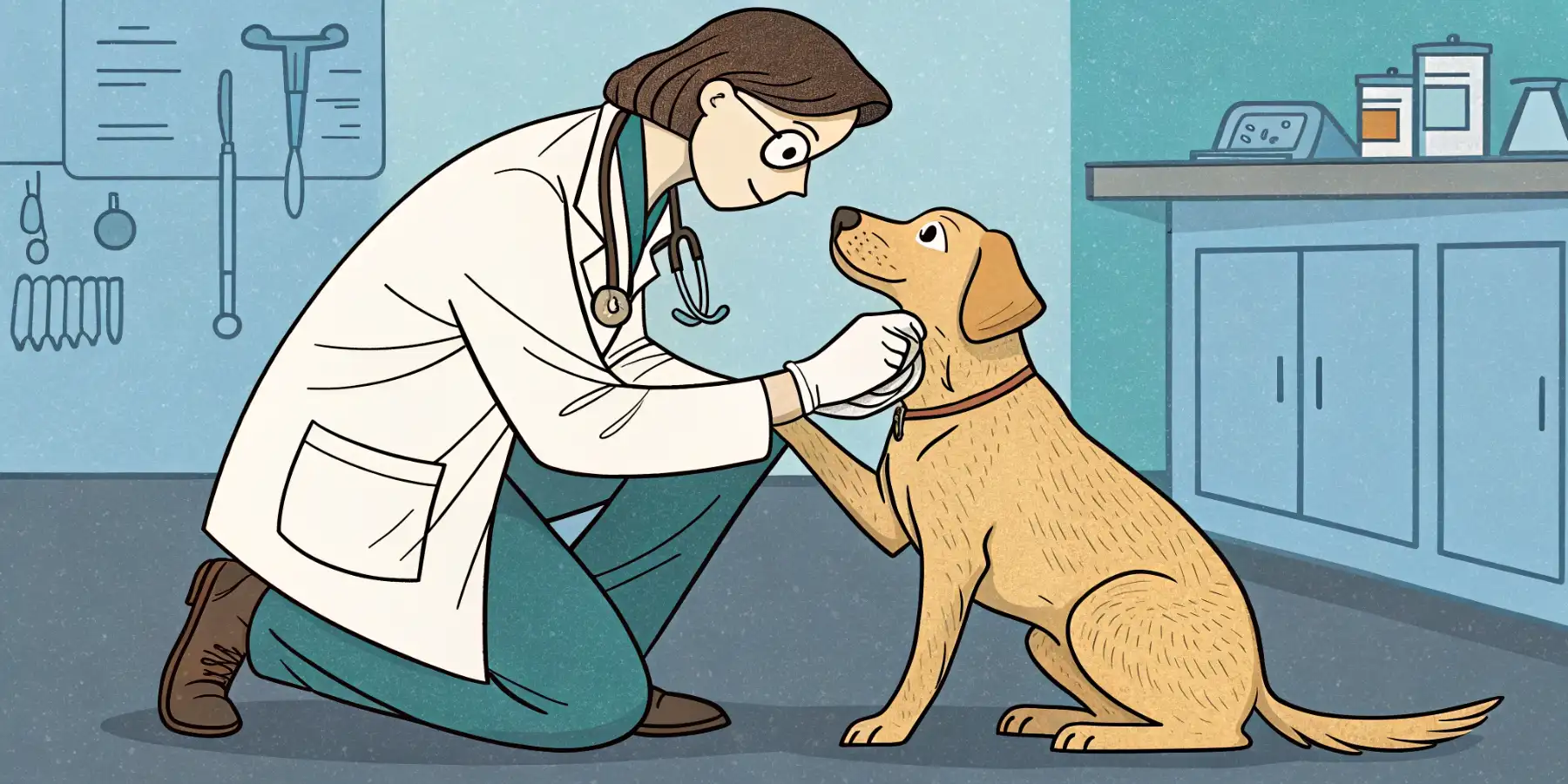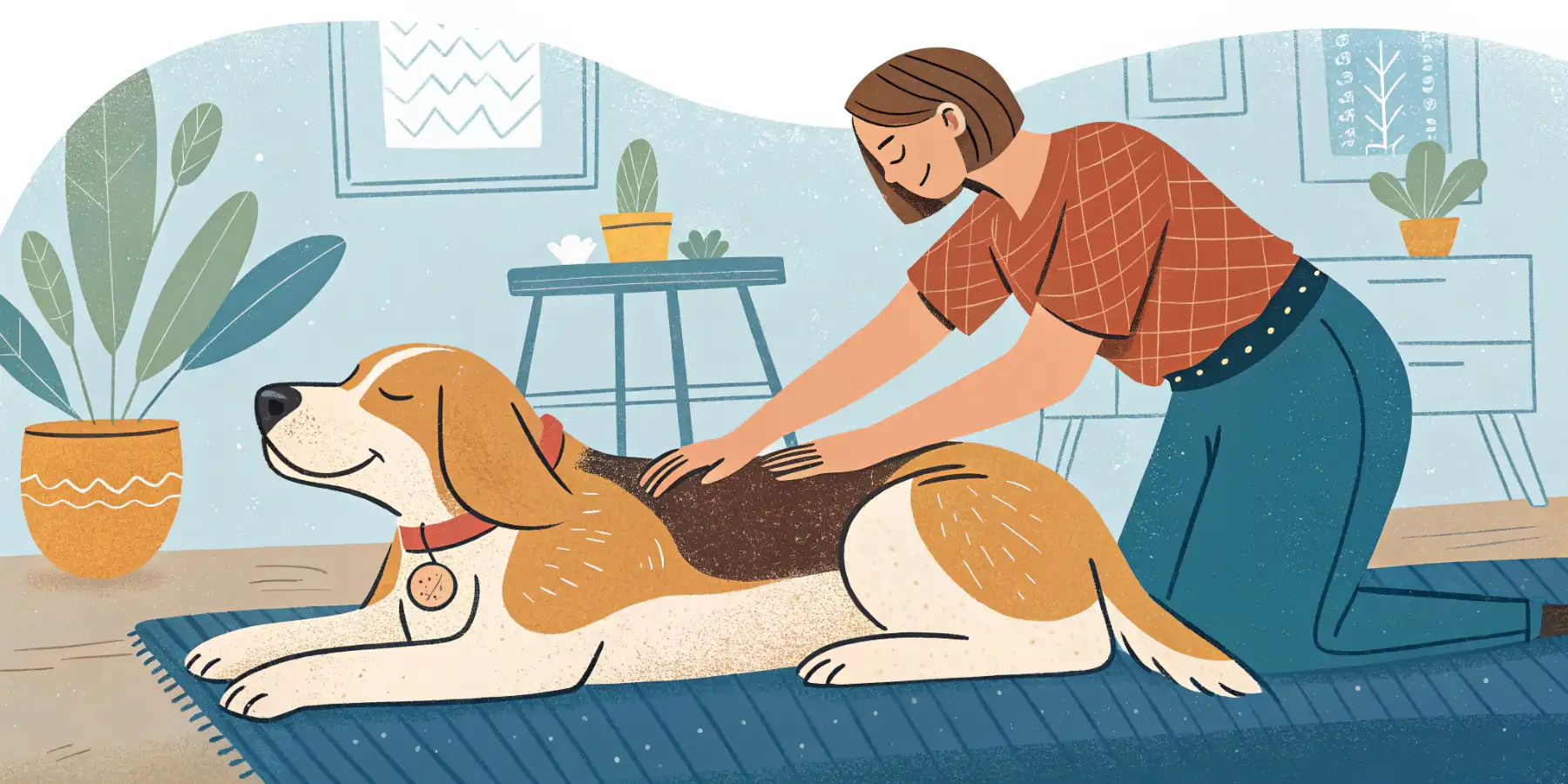
Dog Arthritis Relief: Help Your Senior Dog Thrive
**Dog arthritis** slowing your pal down? Discover tips & tricks for **joint pain relief** and helping your senior dog thrive! Read more.
Managing Arthritis and Joint Pain: Supplements, Medication, and Home Comforts for Old Dogs
Watching your energetic, playful pup slow down due to arthritis and joint pain is heartbreaking. As a pet care expert with years of experience, I understand how difficult it can be to see your furry friend struggle. The good news is, there are many ways to manage arthritis in dogs and improve their quality of life. This isn’t about a cure – sadly, arthritis is a progressive disease – but about providing comfort, relief, and a happy tail wag for as long as possible.
Arthritis, or osteoarthritis, is a degenerative joint disease that causes inflammation, pain, and reduced mobility. It’s particularly common in older dogs, but can also affect younger dogs due to genetics, injury, or developmental issues. Early detection is key – if you notice your dog is reluctant to jump, stiff after resting, or limping, schedule a vet visit. Don’t wait!
Understanding the Signs of Arthritis in Dogs
It’s easy to dismiss subtle changes in your dog’s behavior as “just getting old,” but paying attention to these signs is crucial:
- Stiffness, especially after resting: This is often the first noticeable sign.
- Limping: A persistent or intermittent limp is a clear indicator of pain.
- Reluctance to jump, climb stairs, or play: Activities they once enjoyed become difficult or painful.
- Changes in appetite or sleep patterns: Pain can affect their overall well-being.
- Irritability or aggression: A normally sweet dog may become snappy due to pain.
- Licking or chewing at joints: This is a sign of discomfort in the affected area.

A senior dog comfortably resting on an orthopedic bed, providing joint support and pain relief.
Supplements for Dog Arthritis: A Natural Approach
I’m a big believer in the power of supplements to support joint health and manage pain in dogs with arthritis. While they aren’t a substitute for veterinary care, certain supplements can significantly improve your dog’s comfort. Always consult your vet before starting any new supplement regimen.
- Glucosamine and Chondroitin: This is the gold standard for joint support. Glucosamine helps rebuild cartilage, while chondroitin protects existing cartilage. Look for a high-quality supplement specifically formulated for dogs. In my experience, I’ve seen remarkable improvements in mobility with consistent use of a good glucosamine chondroitin supplement.
- Omega-3 Fatty Acids: Found in fish oil, omega-3s have powerful anti-inflammatory properties, which can help reduce joint pain. Look for EPA and DHA, the most beneficial types of omega-3s.
- Turmeric and Curcumin: Turmeric is a spice with potent anti-inflammatory effects, thanks to its active compound, curcumin. However, curcumin is poorly absorbed on its own, so look for a supplement that includes piperine (black pepper extract) to enhance absorption.
- MSM (Methylsulfonylmethane): MSM is a natural sulfur compound that can help reduce pain and inflammation. It also supports collagen production, which is essential for joint health.
Choosing the Right Supplements
With so many options available, it can be overwhelming to choose the right supplements for your dog. Here are a few tips:
- Look for reputable brands: Choose supplements from companies with a proven track record and positive reviews.
- Check the ingredients list: Make sure the supplement contains the active ingredients in adequate amounts.
- Consider your dog’s specific needs: Some supplements are formulated for specific conditions, such as hip dysplasia or elbow dysplasia.
- Read reviews: See what other pet owners have to say about the supplement.
Medication for Arthritis in Dogs: When Supplements Aren’t Enough
While supplements can be helpful, they may not be enough to manage severe pain. In these cases, your veterinarian may prescribe medication.
- NSAIDs (Non-Steroidal Anti-Inflammatory Drugs): These are the most common type of medication used to treat arthritis pain in dogs. NSAIDs reduce inflammation and pain, allowing your dog to move more comfortably. However, they can have side effects, such as gastrointestinal upset, so it’s important to monitor your dog closely and follow your vet’s instructions carefully.
- Pain Relievers: In some cases, your vet may prescribe other pain relievers, such as tramadol or gabapentin, to manage pain. These medications can be used alone or in combination with NSAIDs.
- Injectable Medications: Medications like Adequan are injected to help stimulate cartilage repair and reduce inflammation. They are often a good choice for dogs that don’t tolerate oral medications well.

A veterinarian carefully examining a senior dog’s leg, assessing joint health and mobility.
Important Considerations for Medications
- Follow your vet’s instructions carefully: Never give your dog more medication than prescribed.
- Monitor for side effects: Contact your vet immediately if you notice any signs of side effects, such as vomiting, diarrhea, or loss of appetite.
- Regular blood work: Your vet may recommend regular blood work to monitor your dog’s liver and kidney function while they are taking medication.
Home Comforts for Arthritic Dogs: Creating a Pain-Free Environment
Medication and supplements are important, but creating a comfortable home environment is just as crucial for managing arthritis in dogs. Small changes can make a big difference in your dog’s quality of life.
- Orthopedic Bed: Invest in a high-quality orthopedic bed that provides support and cushioning for your dog’s joints. Look for a bed with memory foam or a similar supportive material.
- Ramps and Stairs: If your dog has difficulty jumping or climbing stairs, provide ramps or stairs to help them get around more easily. This will reduce the stress on their joints.
- Non-Slip Flooring: Slippery floors can be dangerous for dogs with arthritis. Cover hard floors with rugs or carpets to provide traction.
- Elevated Food and Water Bowls: Raising your dog’s food and water bowls can make it easier for them to eat and drink without straining their neck and back.
- Maintain a Healthy Weight: Obesity puts extra stress on your dog’s joints. Work with your vet to develop a weight-loss plan if your dog is overweight.
- Gentle Exercise: Regular, gentle exercise can help maintain muscle mass and joint mobility. Avoid strenuous activities that could aggravate their arthritis. Short, frequent walks are often better than long, infrequent ones. I believe that swimming is a fantastic low-impact exercise for arthritic dogs, if they enjoy it!
- Warmth: Apply a warm compress to sore joints, or provide a heated blanket, especially during cold weather.
The Importance of Environmental Enrichment
Don’t let arthritis stop your dog from enjoying life! Provide plenty of mental stimulation with puzzle toys, interactive games, and gentle training sessions. Just be mindful of their physical limitations and adjust activities accordingly.

A dog enjoying a gentle massage from their owner, promoting relaxation and reducing muscle tension.
The Long-Term Care Plan
Managing arthritis in dogs is an ongoing process. As your dog ages, their needs will change. It’s essential to work closely with your veterinarian to develop a long-term care plan that addresses your dog’s specific needs. This plan should include regular checkups, medication adjustments, and lifestyle modifications.
Remember, providing comfort, support, and love is the best thing you can do for your arthritic dog. While you can’t cure their condition, you can help them live a happy, comfortable, and fulfilling life, even with arthritis. By combining supplements, medication, and home comforts, you can give your furry friend the best possible quality of life in their golden years.


